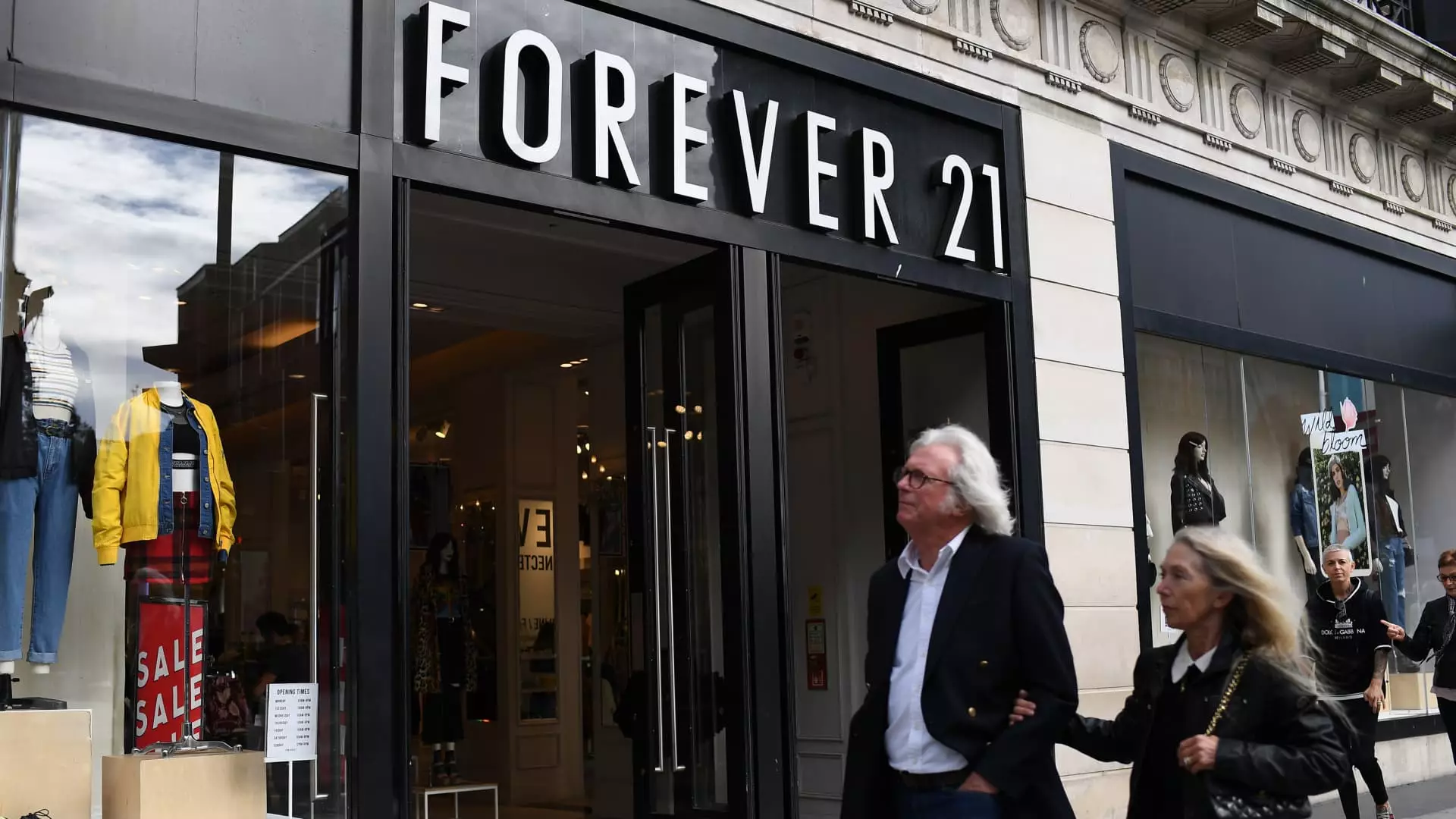Forever 21, a legacy player in the fast fashion industry, is currently facing a difficult time as its sales decline and competition grows fiercer. The company, with over 380 stores in the U.S., has been reported to ask some landlords for a 50% rent reduction to alleviate its financial burdens. This comes as the retailer is working to restructure its leases to cut costs and navigate through its unstable financial situation.
Challenges in the Fast Fashion Market
Forever 21’s woes are not new, as the company has long struggled with managing its inventory, understanding its consumer base, and staying relevant in the fast-paced fashion industry. With the market becoming increasingly saturated and the rise of ultra-fast fashion brands like Shein and Temu, Forever 21 has found it challenging to stay ahead of the competition. The company’s previous bankruptcy filing in 2019, followed by its acquisition by Authentic Brands Group and other partners, has not fully resolved its underlying issues.
The financial troubles of Forever 21 have not only impacted the company itself but also its operator, Sparc Group. Sparc, which manages several formerly bankrupt retailers, including Forever 21, Aeropostale, Brooks Brothers, and Lucky Brand, has faced difficulties in merging legacy brands and centralizing their operations. Late payments to vendors and expensive leases for underperforming stores have further strained the financial health of both Forever 21 and Sparc.
The rise of ultra-fast fashion retailers like Shein and Temu has posed a significant threat to Forever 21’s business model. The speed and agility of these new competitors in responding to trends and consumer demands have outpaced traditional players like Forever 21. Authentic Brands CEO Jamie Salter admitted that acquiring Forever 21 was a major mistake due to the competitive threat posed by companies like Shein and Temu. The partnership between Forever 21 and Shein, although beneficial in some aspects, highlights the challenges faced by traditional retailers in keeping up with the evolving market.
As Forever 21 grapples with rent negotiations, financial struggles, and intense market competition, the future of the company remains uncertain. While the option of Shein taking over Forever 21’s stores has been raised, the lack of experience in physical retail and differences in business models make this scenario unlikely. The company’s ability to adapt to changing market dynamics, streamline its operations, and connect with modern consumers will determine its survival in the fast fashion industry.
Forever 21’s journey reflects the challenges faced by traditional retailers in an era dominated by ultra-fast fashion brands and evolving consumer preferences. As the company seeks to navigate through financial difficulties, competition, and operational hurdles, its ability to innovate, adapt, and stay relevant will be crucial in determining its future success.

